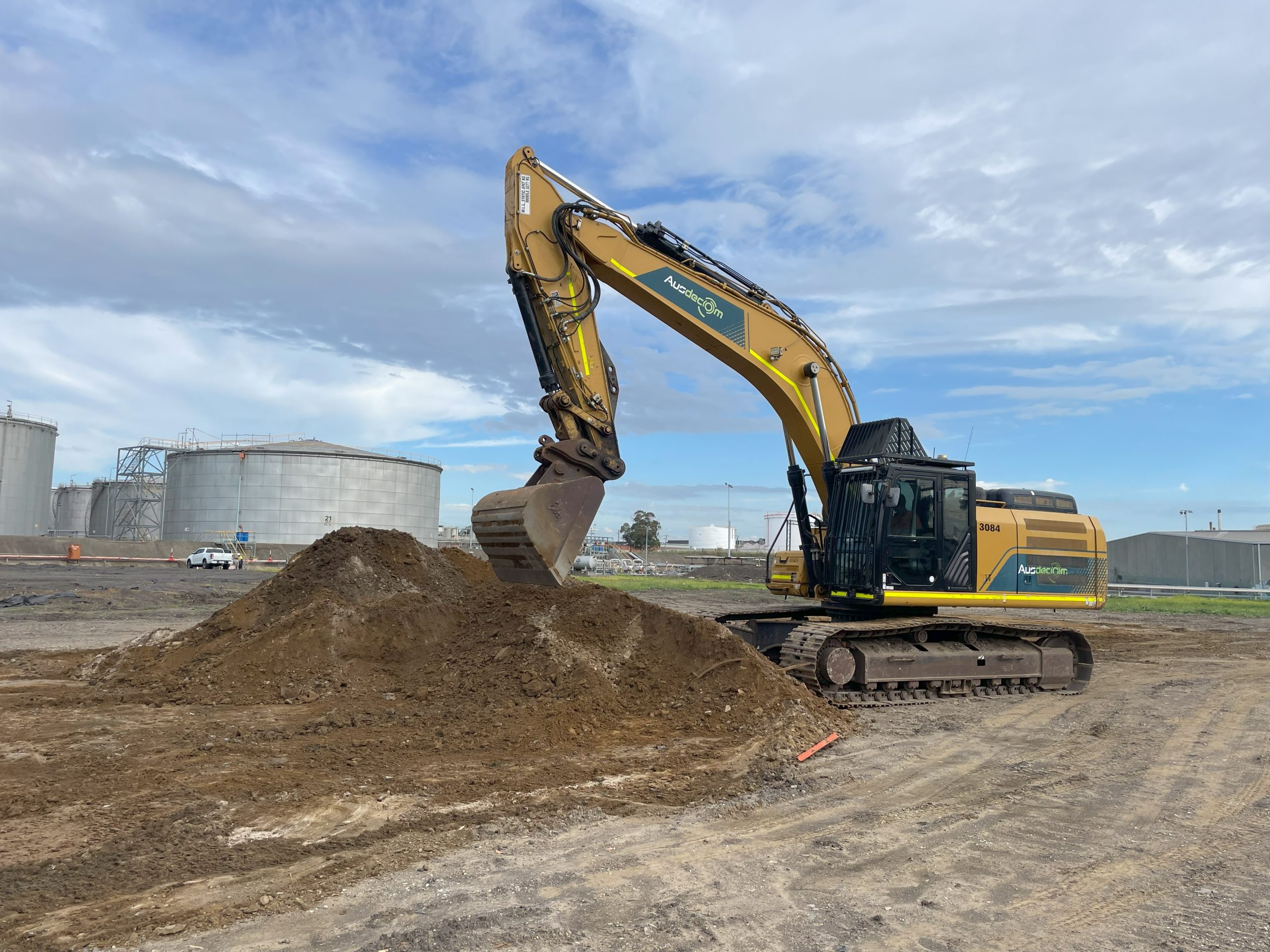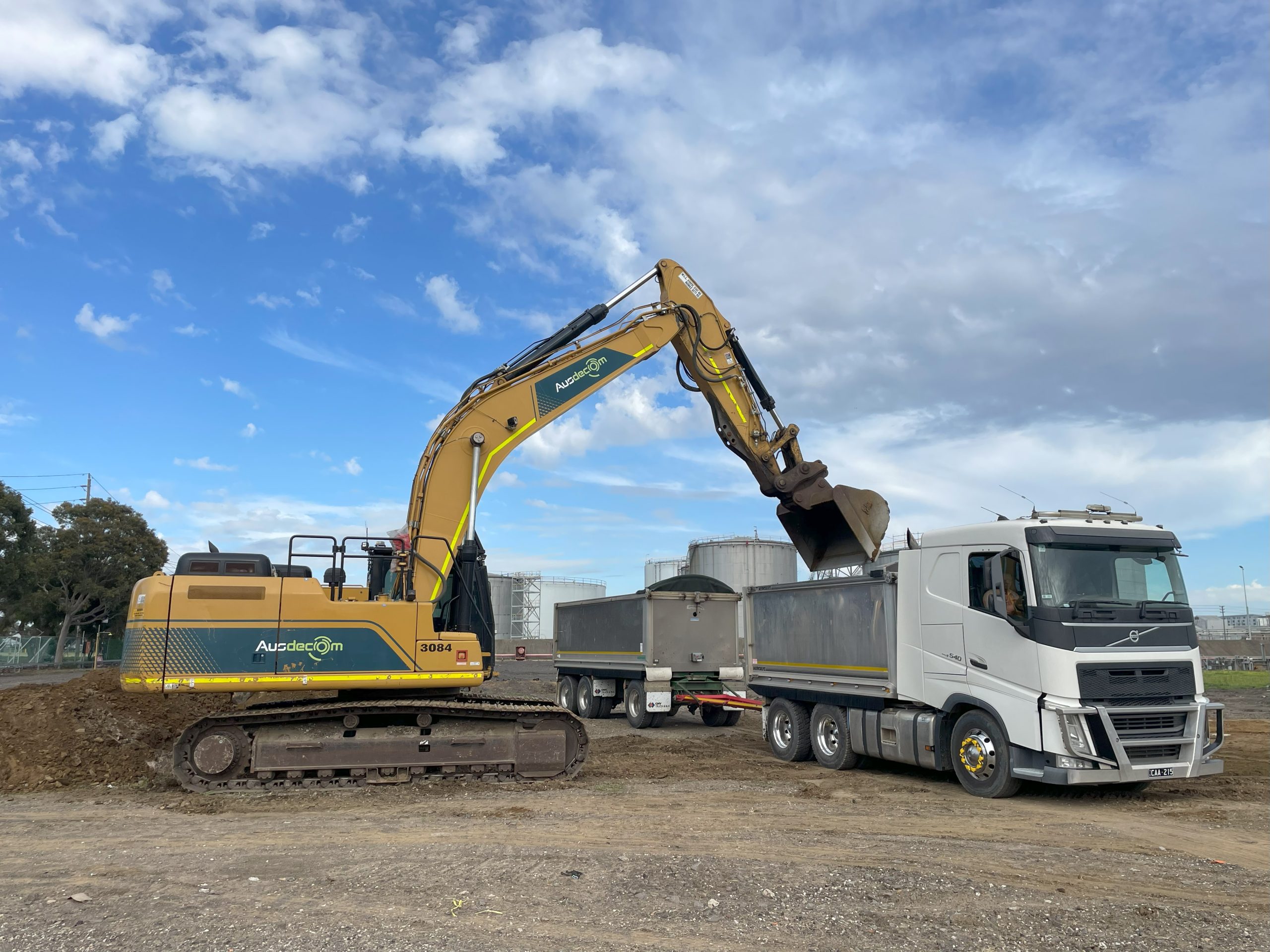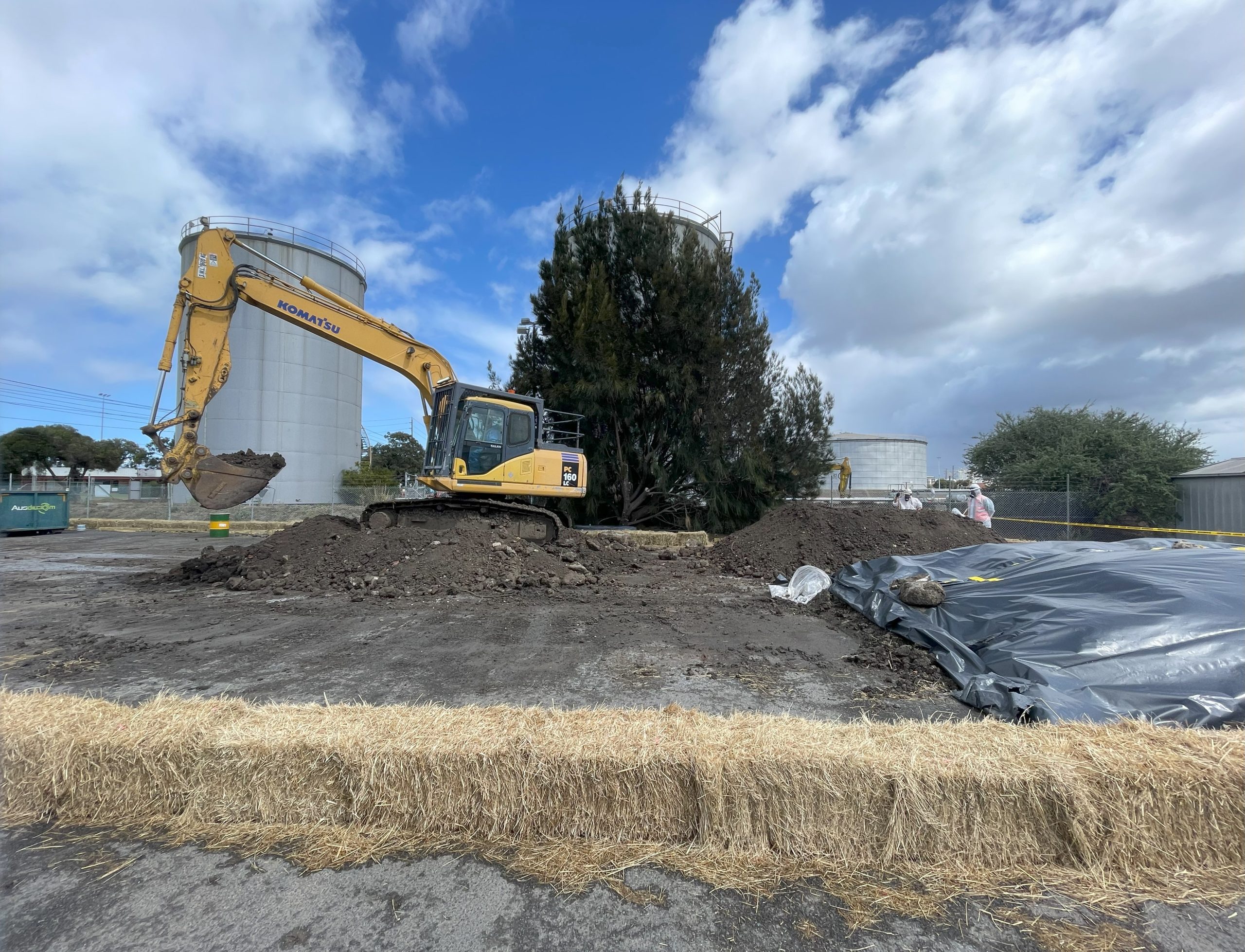Demolition works comprised of the careful dismantling of the former T37 and T38 diesel storage tanks and all associated infrastructure within the works area. These works also involved the careful management of PFAS impacted concrete from the former Fire Training Facility present in the works area.
Ausdecom ensured numerous barriers and safety regulations were in place throughout the removal works which were closely monitored by the onsite supervision and management team.
As part of the Scope of works, Ausdecom were also required to remediate approximately 2,400 tonnes of Category B and Category C PFAS impacted soil in conjunction with the ongoing demolition works. Ausdecom supported the team of onsite Hygienists in the sampling and validation process of each soil stockpile through a means of test pitting, relocation, and inspection procedures.
Due to the presence of friable and non-friable asbestos identified within the soil stockpiles, a large portion of the soil had to be excavated, inspected, and abated prior to transport offsite to licensed treatment and disposal facilities. All soil and concrete stockpiles were carefully segregated into the different waste streams to ensure compliance with EPA classification, transport, and offsite disposal legislation.
Given the nature of soil contamination and works with asbestos, Ausdecom were required to, and successfully implemented careful stakeholder management ensuring that interactions with third party contractors as well as the general public were coordinated without incident.
Throughout the lifecycle of the project, Ausdecom worked closely with VIVA Energy to ensure all site safety regulations, and permits were adhered to by all personnel, thus fostering a trusting relationship with the client and allowing the project to progress safely and smoothly.
All works were undertaken whilst maintaining a good relationship with other onsite contractors and without the need to halt operations occurring within the immediate vicinity of the works area.





